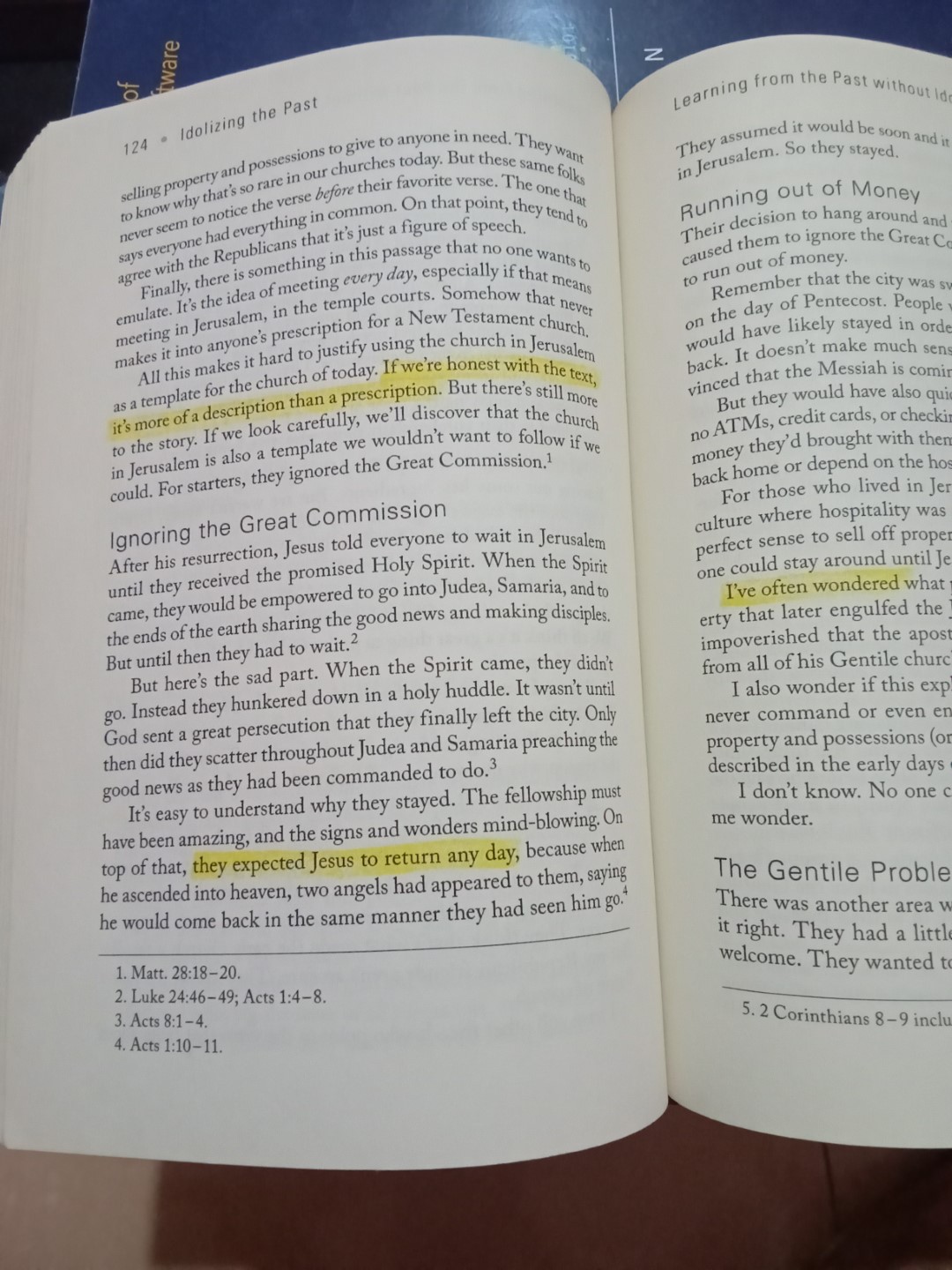November 9, 2023
I finished reading the book “Accidental Pharisees” by Larry Osborne last week.
I remember what I read in that book about the early Christians expecting Jesus to return during their lifetime. It’s from Chapter 14: Learning From the Past Without Idolizing the Past: An Honest Look at the New Testament Church.
Here’s an image of the page where that claim is stated:

The author said that the early Christians “expected Jesus to return any day”, and that’s the reason why they stayed in Jerusalem, and they sold properties to distribute to those in need. (The author of the book also speculated that that might have contributed to the poverty of the church in Jerusalem during Paul’s time. The author also suggested that what’s recorded in Acts chapter 2 are just descriptions of the early church and not prescriptions for us to emulate.)
But back to my main point: I did not know that the first disciples of Jesus expected to see his return. Maybe I have read about that in the past and have forgotten about it. But that claim lingered in my mind while finishing the book — Why does the author make that claim? — I did not bother to google for it because when I was reading that passage it was already late in the evening, and I was a bit sleepy already, and I wanted to finish reading the book.
Then today, while having my lunch, that thought came back to me. And then I also remembered what I had read in John chapter 21 — that in the early church, there was a rumor that John will not die until Jesus’ return (read verses 18-23; try reading it in the Easy to Read Version*). This is one evidence that the early Christians really expected Jesus to return during their lifetime!
Then there are Bible passages saying “the Lord is not slack concerning his promise…“. That might have been words of comfort intended for those who expected Jesus to return during their lifetime, but whose expectations were not met.
Footnotes:
* One of the reasons why I eventually became convinced that KJV Onlyism (especially the more extreme version of forbidding Christians to use other Bible translations in private study/reading) is really bad for the church is because there are passages in the Bible which non-native English readers (myself included) find hard to understand if they use KJV only in their readings. John 21:20-22 is one of those passages.
“If I will that he tarry till I come, what is that to thee?”
What does that mean?
If English is not your first language, chances are you will consult a Bible commentary to be able to understand what that means.
I know that there are moderate KJV onlyists who are not against the use of other Bible translations in a Christian’s private reading or study. “Just treat these other versions as commentaries”, they say. I very much appreciate this more moderate standard. I wish all KJV Onlyists will hold to that kind of standard, because it will be a great help to Christians who are learning from them.
